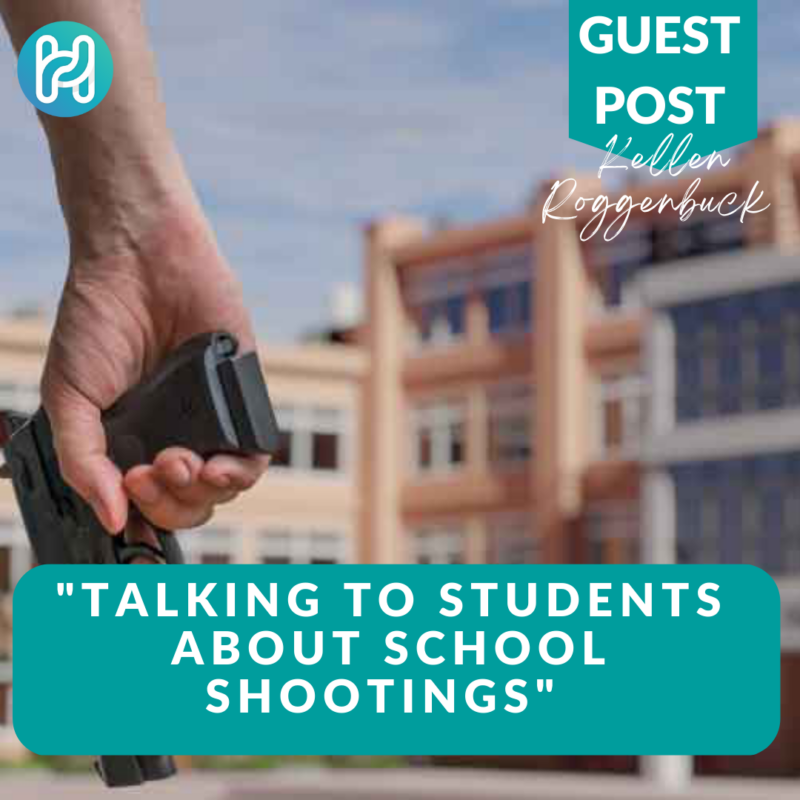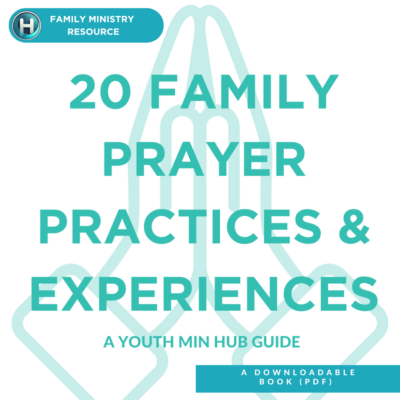Youth Ministry Hints, Youth Ministry Resources, Youth Ministry Thoughts
Talking to Students about School Shootings
Talking to Students about School Shootings. Ministry is about a lot of things, but a growing need in youth ministry in our current era is to help teens process crisis-based tragedies like school shootings. Events like what happened again this week are happening more and more often, and students have questions, anxiety, and concerns about what it all means for them. Middle Schoolers are especially a unique breed of youth that need special consideration with topics like this, too. Each group has its own dynamic and is made up of its own individual opinions, but there are some best practices when addressing these crisis tragedies within the group.
Hopefully, the below can be a good starting point for fruitful discussion talking to students about school shootings.
Let your pastor know this is happening. Even if you do the best job ever, there is a chance that a parent will be upset you bridged this topic with their child. Before you have this discussion, let your pastor know it is happening, inform them of the steps you are taking to ensure it goes as smoothly as possible, and consider inviting them to be a part of the discussion.
It’s also not a bad idea to let parents know you will be covering this topic if you know enough ahead of time. Obviously, sometimes these happen on the day of our youth meeting, and it’s hard to send out an email beforehand, but if you are planning to do it, try to let everyone know so that no one is surprised or upset.
Create time to be a listener. This subject is not one that can be rushed. Depending on how fresh the event was, your students may be processing in real time. When starting this discussion, it is helpful to set aside as much time as you can so that there is time for everyone who feels like they need to share can do so. Be patient. It may take much of the discussion time for some individuals to become comfortable enough to share at all, but they may be the ones that need to share the most. If at all possible, have your leadership stay after so you can provide time to meet with anyone that wants to talk one-on-one. Being heard is a great place to start with this type of topic; it will reassure those who need to talk it through, and it will help you gauge where some of your students are at with this.
Encourage “I feel” statements. In times of processing crisis, it can be helpful to focus on “I feel” statements in a discussion, like “I feel scared now when I am in school.” Young students (middle schoolers or pre-teens) are still developing, and their emotional responses might need organizing. “I feel” statements bring focus into our emotional response to an emotional event and avoid judgment or overly intense statements. It can bring more clarity to the emotional responses of the teens and limit angry outbursts.
Focus the divide. When discussing topics like school shootings, especially in our current climate, it is possible that things may become political in nature. Students come from diverse households and families with diverse beliefs about gun control, gun rights, mental health issues, etc. Younger teens are just getting to the point in which they are developing their own opinions, and one of their strongest and first resources is their parents. Try to focus the group on a central place of grief, processing, and faith-based reaction. Asking questions like, “How do you feel?” and “What should we do as Christians to help?” can help keep the conversation where it should be. When we are healing from a fresh tragedy, arguments about the 2ndamendment or mental health policy is not helpful or productive and will likely do damage to the relationships of the group. With as charged as this discussion may become, keeping it fruitful is crucial.
Keep the routine if possible. The more disruptive the event, the more routine will impact your students in a positive way. If you have food or games as part of your ministry time, try to maintain your schedule as much as possible without seeming like you are ignoring the issue. Perhaps your Nerf War night might need to be adjusted, but instead, play a board game or a lower-energy icebreaker game.
Reassure everyone they are safe. Part of why this is so scary to teenagers is that it is their peer groups being attacked. They see themselves in those victims. Reassure them that schools are safe places and constantly working to become safer, and take time to share that they are safe at their church, too. This is to comfort and bring perspective, not dismiss or invalidate feelings of fear. Let them share their fear, even if it’s irrational. Take this time to review the safety plan at the church, focusing on the safeguards like locked doors, adult presence, and an exit plan. We strive to make our groups a safe place to be and share, making sure the students feel as safe as they are.
It’s also a great time to have a parent meeting and review the safety plan in a public setting. Parents are looking to be reassured, too. Them knowing that you care about their middle schooler’s safety as much as they do will go a long way.
Review and share the safety plan. Before this discussion happens, and before you can reassure your youth using your safety plan, you must have a safety plan. If you already have one, review it with fresh eyes and make sure you are doing everything you can to keep youth safe. If you don’t have one yet, begin looking at your ministry time through the lens of safety from outside intrusion. Where can people access the building? Are unused doors locked? Do you have an escape route out of the building? Do your adults know what to do if there were an intruder? Put something together, train your leadership, and be ready to share with the students. Church shootings are much rarer than school shootings, but in a time of anxiety and fear like this is the perfect time to have a comforting, well-thought-out plan.
Pray without ceasing. Pray during the preparation of this discussion. The Holy Spirit needs to be involved in this preparation, discussion, and healing. Pray at the opening of the discussion for open minds and open hearts, for healing and compassion, and for the leadership to facilitate this difficult conversation. As you close the discussion, pray as a group. Pray for the event itself, the victims and their families, the perpetrator and their families, the youth group, their concerns, and their school’s safety. This alone is a lesson for the youth to pray for the perpetrator and their family by praying in times of crisis and even to proactively pray for the school’s safety. It shows youth in a new, raw context that prayer is important and meaningful. Prayer is a powerful thing, and we are never in this alone.
Have resources available for youth and parents. After the discussion, be sure to have a list of resources available for teens and their families to discuss these topics in the home. There are a number of great articles out there from groups like the American Academy of Pediatrics (AAP) and the Substance Abuse and Mental Health Services Administration (SAMHSA) on how to process and work through this as a family. It may be helpful to have reference pages or websites handy to explain your church or denominational stances on acts of violence, guns, and church safety.
These considerations and best practices are a good start to framing this difficult discussion, but there are specifics to every group that needs to be considered as well. Make sure you are aware of as much as possible before this conversation begins, like the students’ connections to this specific event, if there are any students with a history of trauma, etc. Take the time to do this well so that your students can heal, grow and begin to see what the Holy Spirit is calling them to do in response to these events. And it is important for you as a youth leader, your volunteers, and your staff to process this together, too, because it impacts us and our lives as well.
______________________________________________

Kellen Roggenbuck is a Methodist pastor and author in Wisconsin. Born in Denver, he grew up outside Chicago in Oswego, IL, and has worked for almost two decades in the church. He is also a ukulele enthusiast, taco truck aficionado, and all-around okay guy.
He is also a children’s book author of popular books like: “My Dad Has a Beard”, “My Mommy is Always Right” and “The Awkward Dinosaur” (Click Here to Check Out More TItles)




